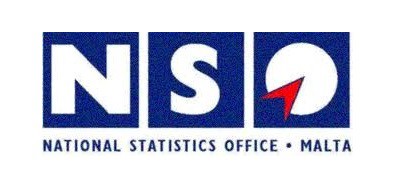-
Reliable and timely data – Videoblog 12

The video blog explains the main issues that statistical agencies like the NSO have to consider when collecting and publishing data. – Saturday, 3rd August, 2013
-
External demand essential for economic growth – Videoblog 11

In his weekly video blog, Finance Minister Prof. Edward Scicluna discusses the issue of external demand, and why this is important for a country like Malta that depends on external demand for its exported products and services. Prof. Scicluna explains that external demand depends considerably on factors such as the state of the international economy…
-
Standard and Poor’s Decision to Affirm Malta’s Stable Credit Rating – Videoblog 10

Credit agency Standard & Poor’s notes that the new Government is progressing with a wide-ranging reform programme to tackle issues – some of which have been persisting for a number of years – such as the energy sector which is being addressed through a clear plan which has been long overdue. The agency says that,…
-
Taxation: criteria for consideration – Videoblog 9

In his weekly videoblog Finance Minister Prof Edward Scicluna discusses various aspects related to taxation. Besides being an obvious source of revenue generation for governments, He illustrates how progressive taxation is designed to levy taxes at higher rates on high income earners to in order to achieve a more equitable distribution of after…
-
Safeguarding Financial Stability – Videoblog 8

In his weekly video blog, Finance Minister Prof. Edward Scicluna talks about the effect of a financial instability in an economy and how it could lead to devastating financial losses across all levels of society – including families and pensioners. He explains that despite European member states’ existing regulatory frameworks, the EU was not…
-
The Banking Resolution Directive – Videoblog 7

In his weekly video blog, Finance Minister Prof. Edward Scicluna discusses the recent agreement reached by EU Finance Ministers regarding the Banking Resolution Framework Directive. He explains why, in the eventuality that a bank might collapse, the ideal way forward lies in a compromise between the bail-in approach (where the financial burden is shifted to…
-
Finance Ministry’s first 100 days – Videoblog 6

In his weekly blog, Finance Minister Prof. Edward Scicluna looks at the Government’s first 100 days, and the work he and his Ministry focused on during this time. He explains how at a critical time, the Government successfully contained the risks posed by the Cypriot crisis to Malta, and how Malta’s economic and…
-
Financial Crisis: Resolution and Avoidance – Videoblog 5

In his weekly blog, Finance Minister Prof. Edward Scicluna discusses the financial crisis, and how it led to two reactions in the European Community. The first was a desire to resolve the crisis through affirmative action such as bail-outs, while the second was a desire to ensure that such a crisis does not repeat itself.…
-
Country Specific Recommendations – Videoblog 4

Finance Minister Prof. Edward Scicluna discusses the European Union’s Country Specific Recommendations, which are issues that the European Commission considers a priority for each Member State to address, and how these form part of the ongoing Economic Semester. – 5th June 2013
-
Tax havens or tax heavens – Videoblog 3

Jurisdictions with very loose financial regulation, guaranteeing complete bank secrecy, levying no tax and turning a blind eye to money laundering. Do these jurisdictions still exist today? If they exist the OECD would have long blacklisted them with dire consequences. So what is the current debate about? It is about the grey area of tax…